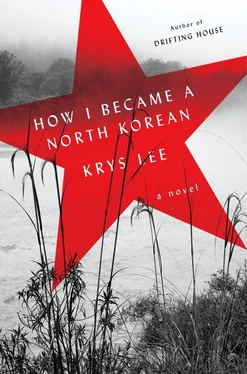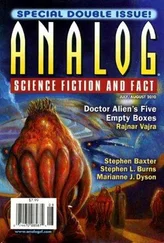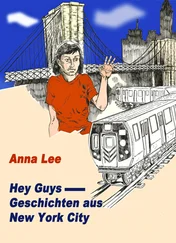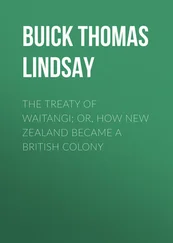This man named Seongsik said, “You really do believe me now, don’t you? I’m a person who can make these kinds of meetings happen. I know everyone, and everyone knows me. Money? Who needs money? You need connections.”
He tore skin from his lower lip with his teeth. He wanted my approval, the way he repeated himself made that clear. But we didn’t have much time so I interrupted him.
“I learn fast,” I said. “I’ll learn anything you want.” I shut my eyes tight so I wouldn’t have to look at him.
When I opened them, he was still shyly taking me in. The shy ones were the worst, hard to read.
“Why do you want to leave?” he asked, as if half my country, the country of his ancestors, didn’t dream of living differently.
I was so nervous that my fingers dug arcs into my palms. “There are no good men in my country.”
He brightened as I’d intended. “I’m a good man, I promise.”
While the border guard smoked an imported cigarette from the many cases I’d given him to keep him happy, the Joseon man and I hurried through the ten minutes of time we had to talk — the courting time that he had bought for us.
Money was a symbol, a disease that infected our country. It was all the money I had earned after quitting school during the Great Hunger, my life savings you could call it. I was eight when the famine changed everything. After the government rations stopped and the crops were flooded and destroyed year after year, my eomma made several trips into China’s border towns to find work and food to feed us. Our government had disappeared and everyone who had followed the rules, including my abba, died. I didn’t follow rules; I stole and bartered and learned quickly, and I survived. But when the government devalued our money and made our savings worthless, all my work became nothing at all. There was no present, and the future looked even worse. Then my monthly bleeding stopped, and I realized I was pregnant.
• • •
After that brief meeting, I continued talking with the Joseon stranger on a Chinese Telecom — wired cellular phone that I used to smuggle goods between the two countries. I delayed making decisions while I continued to work and earn yuan. Foreign currency was the only kind I trusted anymore. The same dust clouds blew behind me as I walked to the Chinese border. It opened its large mouth to receive and release dried fish, iron ore, pine mushrooms, and other goods that we floated over in plastic sacks to our Chinese partners across the Tumen River after paying our bribe. Unless we were pretty and poor — then we could pay with our bodies. I stared across the narrow bend of river at the cars and the blue- and red-tiled roofs bright in the sun and imagined who, on the other side, I might become.
There was no dream possible on our side of the river, and a child with only a mother would be a second-class citizen. But I didn’t rush and made contact with a broker trolling our border towns for prospective brides to marry unwed Chinese men. This woman with leathery hands approached me at the market, then quickly pulled me away so that we could talk in private and out of danger. She made me offers: “This man they say has one of those wobbly, not so strong hearts, but he’s a meek one — so you can do what you want!” “That one’s a farmer living in the countryside and owns a lot of livestock.” “A landowner — you know what a landowner is, right?” “And this one, this one’s a businessman.”
“What business?” I asked.
“Business, business,” the marriage broker replied, and looked offended.
I thought of telling her about the baby I was carrying, how the man was a powerful local ganbu who had protected my growing smuggling business, and laughed out loud.
The businessman could have strange sexual desires or be violent, the farmer could be as old as my grandfather. Rumors traveled through the markets, and I had heard of such marriages. But the harmless-looking man who had arranged our brief meeting a week ago on the frozen river, this sometimes tour guide with his seesaw limp and sun-beaten face, he was real. Even though my eomma was famous for not showing until her fifth month, I was afraid my body would start to betray me; leaving wasn’t a choice anymore. It was Eomma or my baby.
After the broker that the Joseon man had hired bribed a chain of local officials, after I bribed still others to register me dead of tuberculosis to protect my eomma, I left while she was sleeping; it was safer for her not to know much. I packed the essentials, nothing personal, and passed the village walls without looking back. I believed I was good at not looking back.
• • •
Maybe it was two or four in the morning when I finally crossed, but all the hours feel the same when you’re terrified and ready to end your life if caught. Against the mountain peaks rising like dull knives, the moon stalked our half-naked group wading across the shallow river. The moonlight made us as translucent as ghosts; it was as if we were shedding our very selves to become someone else.
“It’ll hurt,” the broker leading us out had warned. Hurt wasn’t the right word for crossing in early spring. Pain needled up my legs. I blew out white clouds too thick, too visible; I tried to stop breathing. Halfway across, I heard what sounded like a gun. We dropped deep into the water, and my hands rose up to beat away a bullet that never came.
Like the thousands before me since the famine, I shadowed the broker’s exact watery steps to avoid the mantraps along the shore and the gaze of China’s cameras. I could only ask myself: Why didn’t I cross before the river’s sudden thaw? Finally, shivering, colder than I have ever been, I dragged myself up the muddy bank and kneaded my numb fingers and toes. When I found them still there, I felt light, almost happy. I looked for the man who would be my husband, for now. His thin arms, his chestnut-brown face, anything to reduce the scale of that country suddenly too large for me.
• • •
That was how it happened for me, the impossible dream of crossing.
But the Dear Leader’s arm had vast reach, and even as I crossed the river and disappeared to marry the Joseon- jok man, we weren’t exactly married. We who entered China, and all the children created from these marriages, didn’t officially exist.
The broker had received the extra cash that he demanded, and the Joseon man named Seongsik left me overnight at his friend’s house. “Only until our wedding,” Seongsik said, and blushed.
I was too scared to sleep and too exhausted not to, and my throat was so tight that I couldn’t keep my food down. The next day, he returned to gaze at my pale face as if marveling that I was his.
“We’re starting out on fertile land, for luck,” Seongsik said. I followed him out of the house, fearful that I looked like someone from across the river despite my new clothes. He was referring to the field set up for our wedding ceremony, but when we got there, it looked like nothing could ever grow out of it.
“It’s farmed by my church deacon,” he said.
The shoes he had me wear, more slender towers than shoes, threatened to send me tumbling into the mud.
“Church?” I didn’t know what a church was yet.
He caught me as I wobbled. “Don’t worry. Just do what I tell you to.” He held me tightly by the arm and pulled me along as if he were leading a cow.
I didn’t like being told what to do, but he had paid too large a sum for me. Already twice that morning he worried out loud about the broker’s sudden last demands. And I was grateful. How could I not be? Seongsik was as slight as the orphans who snatched corn doughnuts from the hands of customers back home and ate as they were beaten — but he had saved my unborn baby.
Читать дальше












